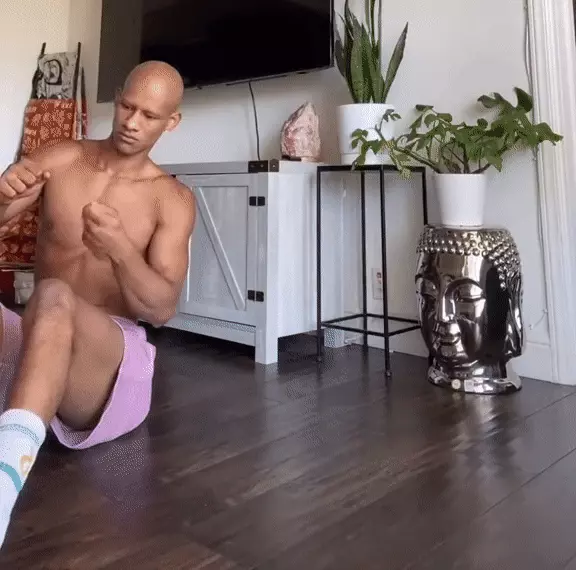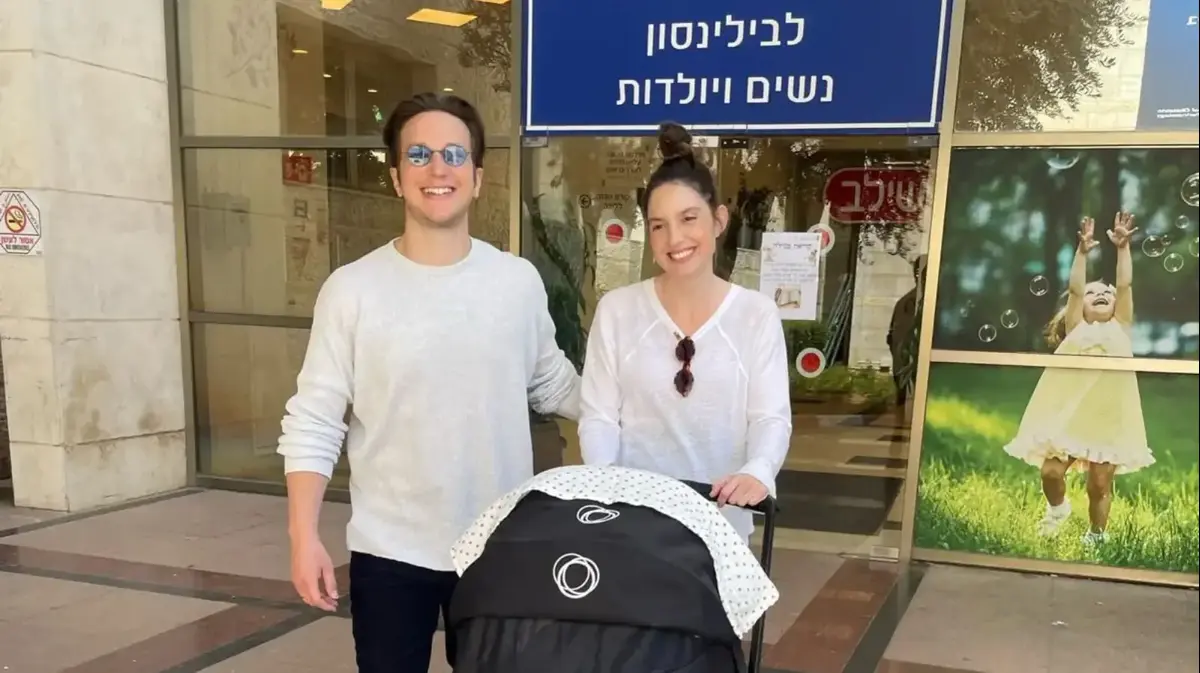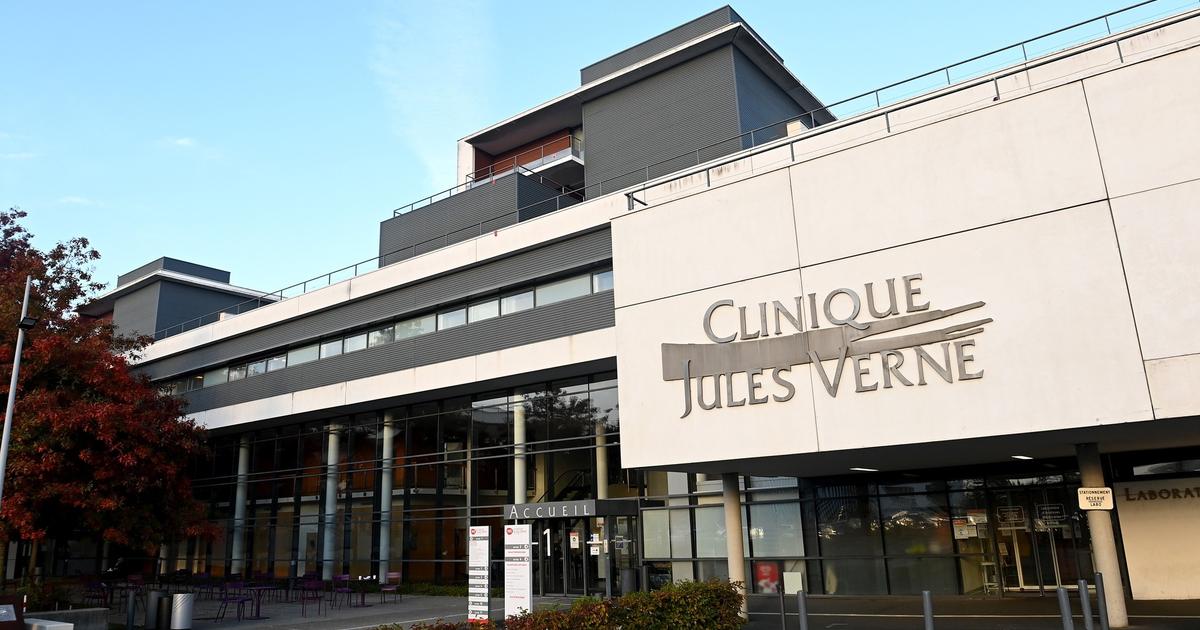news
News in Israel
Events in Israel
100 years after her birth, Hannah Szenes' family is convinced that she was sent on an impossible mission
Dudi and Eitan, nephews of the mythological paratrooper who was born today a hundred years ago, tell in an interview with Walla!
The state's way of commemorating their aunt's memory and the meticulous military ethos built around it.
"I'm not far from saying about her that her character was abducted. I'm not sure she would have lived in Israel if she were alive."
Tags
Hannah Szenes
Yoav Itiel
Friday, July 16, 2021, 8:00 p.m.
Share on Facebook
Share on WhatsApp
Share on general
Share on general
Share on Twitter
Share on Email
0 comments
Hannah Szenes, a national heroine, used the code name "Hagar." Her nephew, 62-year-old uncle (uncle) Szenes, says it's not for nothing. “Like the biblical Hagar she understood deep down that she was being sent on a mission from which she would not return. Even those who sent her knew she would not return. I have no doubt about that, "he says. Even my uncle's older brother, Ethan, 72, believes that" the leadership of the community at that time knew who send these people something impossible. "
The things they say they mark the centenary of his birth, an event specified Today (Saturday), and they have a "full stomach" for not talking about the issue, or anything that might harm the meticulous military ethos built around their aunt. "It has not changed and the main ceremony will be military, and more abroad," says Eitan. "To say of her that her character was abducted is really powerful, but I'm not far from it," my uncle adds.
"The leadership of the settlement knew that these people were being sent to something impossible." Hannah Szenes, 1939 (Photo: Government Press Office)
Dudi Szenes, who himself was a prisoner of war in Egypt during the Yom Kippur War, claims that "on this issue, and on quite a few things related to it and its mission - they prefer not to talk." My uncle is a member of the Committee Against Torture, as well as the Amek Association - the Israeli Center for Psychological and Social Support for Holocaust Survivors.
My uncle claims to have realized this when he met a man who encourages enlistment in the IDF in schools, who told him that one of the main myths he lectures on in the connection between Judaism and Israeliness is that of his aunt. "The truth, but I do not want to know the truth," the man told my uncle.
"I'm not used to it in my professional field that a person would not want to hear the truth," says my uncle, a clinical psychologist. Between myth and truth, I walk on the truth. "I do not want to know the truth," they will not say, but at least he said. "
According to my uncle, "Shurika Braverman, who was a paratrooper in the settlement, once said she 'does not know if Hannah went to save her people or her mother'. In the family we emphasize this. So I'm telling you it could not just be - in her character it was too. "
One hundred years since her birth.
Hanna Szenes in Sdot Yam (Photo: Official Website, Beit Hanna Szenes Archive, Kibbutz Sdot-Yam)
The descriptions that are closer to reality he heard through his grandmother Katrina, Hannah's mother, and through his father Giora, who was her brother. My uncle himself is a parent to a son and a daughter, while his brother Eitan is a father of three daughters and a grandfather of six grandchildren. The pair of brothers are today the closest remnants of Hannah Szenes. "As a small child, I felt that with the teacher, the school principal and every other adult, the breath was taken away when they heard my name - 'Szenes?'"
"In my childhood years, I heard in one ear what was said in ceremonies, books and articles, but in the other ear I heard what I learned from Dad's conversations with Grandma," my uncle testified. He added that "they talked for hours in Hungarian, maybe so that I would not understand. A kind of 'when you grow up - we will tell you'. I realized that there are other sides as well. Slowly another picture began to emerge, which is at least ambivalent."
He says that his father had doubts about the mission of the famous paratrooper.
These doubts arose in retrospect of course, because he did not know at all that she was embarking on this mission.
"There is a famous picture that everyone knows when he came to Israel," my uncle said of his father.
"He was arrested and transferred to the Atlit illegal immigration camp, but his sister Hannah, who was already a British officer, arrived and without any problems took him out, one day before she went on a mission. That day they had already gone to Angers in Tel Aviv together," he recalled.
My uncle said his father was older than his sister, Hannah Szenes, by one year in total.
"They were very close, almost twins, and being orphaned by their father at the age of 6-5 brought them even closer. She and he even put out a newspaper, 'The Little Men's."
"They were very close, almost twins."
Hannah Szenes with her brother, Giora (Photo: courtesy of the family)
"She was a good, introverted girl. A lot of help to the mother, who remained a widow. If she had gone through her youth now she probably would not have had an Instagram account," he says of her, expanding on her relationship with her brother. "They were soul mates. Beautiful, but different. She was very emotional and deep in everything she did. She loved concerts, generally loved the European culture that a girl from such an aristocratic family was exposed to. She had a collection of coins and a collection of postcards from all over Europe."
According to my uncle, the connection between his father and Hannah "was exceptional. He said more than once that he did not know she was going on this mission. What my father knew was that she was going to Cairo for skydiving, or something like that. He said that if he knew she was going on a mission "He was trying to persuade her not to go out. Not for some ideological reason, but because it was a lost mission, too dangerous."
"He said something more interesting: It's true it was a secret, but that if she had asked him he would have told her it instead."
My uncle's father believed that if he had told his sister these things, then she would indeed have avoided going on a mission.
"It should be understood that the relationship between them was total, and this meeting is after five years they have not seen each other. He was in prison in Europe and she was here in the sea fields. "She could tell she avoided it, because she knew he would persuade her not to go out. That sentence remains etched in my memory. They will not say that at the rallies."
"Dad said that if he had known she was going on a mission - he would have tried to convince her not to."
Dudi Szenes (Photo: Yoav Itiel)
My uncle recounts how "Doula Information" was from his grandmother, Hannah's mother, who lived in an apartment building not far from the Technion, in Ramot Remez, Haifa. "She lived not far from us. In the apartment where Hannah had never been, she dedicated a room to commemorate her but in fact the whole house was a kind of 'temple to Hannah.' I would go to her on Fridays and then she would speak to me a little Hebrew. The whole house came from Europe with his books, archives and furniture. This small apartment was a temple for him and her. And published it. "
"When I came to my grandmother I slept 'in Hannah's room', not that she was ever there. I was born ten years after the war. I am like the sabra which is the answer to the Holocaust and more than that, my father insisted on marrying a native, a sabra from the Kinneret colony," my uncle recalled In childhood in the north.
"My childhood was very old-fashioned, in the neighborhood, on the street, with friends, but when I went to Grandma, I would enter the other world. The Hungarian language, the quiet, the order, the restraint, the food in measured portions that can no longer be asked. And she would speak to me in her heavy accent. "And I would barter with her. I would teach her the Bible and from time to time, if I asked, she would answer my curious questions in her Hungarian accent."
My uncle thinks he is responsible for making his aunt's character historic.
David Ben-Gurion (Photo: GettyImages)
My uncle thinks that the person responsible for making his aunt's figure historic is the first prime minister of the State of Israel. "I can only imagine that Ben-Gurion sat with some of the great men of the settlement then, and said, 'Bring me five heroes. I need to build an ethos from this people, from the dust of this man who came here.' There were others, there was Eliyahu Golomb, Teddy Kollek, the big names. "She connects Judaism and Israeliness. She connects before the days before the establishment of the state and after the establishment of the state. She was both a woman and a new immigrant."
Szenes, however, argues that his aunt's character has been “improved” somewhat in favor of a more accepted image across all sections of the nation.
"But there was also a but. In Hungary she went to a Catholic school because Grandma thought it was the best education for an assimilated girl to forget her Judaism. For them, they were completely assimilated and completely atheists. These are two indisputable things. It is also modest and vice versa. Today, Through 'Walking to Caesarea', with 'Eli Eli', they claim to have prayed or something like that. I think they made a great choice with excellent opening data and what did not suit them was what they asked for. wants to".
"If I had done tests for her pilot course she would have passed big time."
Hanna Szenes in Sdot Yam (Photo: Official Website, Beit Hanna Szenes Archive, Kibbutz Sdot-Yam)
"There is no doubt that she had opening data. If I had taken tests for her pilot course, she would have passed big time. I say this with certainty because I saw what pilots have in their bags," says the psychologist's nephew. "On the way". She actually immigrated to Israel, actually came to Nahalal, actually decided to become a farmer and actually decided that at university she would study agriculture. She had a lot of rebellion but positive rebellion. In the diary. She traveled with her camera and explored the whole country through her documentation. She finished school in Nahalal and did not want to go to a kibbutz of Hungarians like Maagan, but to a kibbutz that did not yet exist, like Sdot Yam whose members still lived in Kiryat Motzkin. She wanted to live in a kibbutz, she wanted to build a kibbutz first. "
But it was precisely in the new kibbutz that the beginning was not easy.
"And here in the kibbutz it turns out that she did not fit in. This is also modest. In her diary, she describes her emotional and social difficulties as a new immigrant. She did not fit in 'stealing chickens,'" my uncle describes.
"On the other hand she had charisma. In retrospect her friends in Sdot Yam always told us that she was 'inaccessible', separate, not arrogant though but mostly poignant. She would stand up in meetings and say what she thinks. Everywhere. She could not be ignored and also listened. "
Hannah Szenes' Bone Raising and Burial Ceremony in Israel, 1950 (Photo: Government Press Office)
Dr. Szenes discussed the political aspect of his aunt's memory. "It is interesting that most of the interest in her in the country comes from the right. We still do not have a bar mitzvah, it is a family tradition. I am also secular in my statement, not just because I am not religious. And this matter is also modest. It had a new religion called Zionism. It's the dream we live in. "
He said," She was a grown man and she made a choice. So I'm not blaming anyone who sent it. There were all kinds of politicians around her who were then 50-40 years old and it was important to them that they did not come after the war and say that the settlement in the country did nothing. lip service. She went pure in her own way, really poetic, to save people, in the end she saved no one and lost her life. "
When asked if she belonged to the right or left camp if his aunt was alive today, my uncle replies: "I do not know if she was here at all. I too when I came back in 1990 I came back for the chickpeas. In terms of values, we are simply going in the wrong direction. "
"The State of Israel has become a sparta and my aunt's character was also taken in this direction," adds Eitan Szenes.
Everyone is looking for how to celebrate and may not have thought to interest the family in considerations, even though I do not think we would have traveled.
We live and work here and it's not that we do not know how to reach us when we need to.
So the State of Israel continues in its line and these ceremonies will be performed without us.
I think in this matter my uncle and I are in agreement.
On Saturday, I will celebrate the premiere of a play about Hannah Szenes at the Holon Youth Theater.
"A show is something worthy and the very fact that they do it for the youth is exactly the reason why I dedicated myself to this whole issue, because I think its character is educational and there is a lot to learn from it."
It went in the direction of the army and mission, and that's not what she left behind. "Eitan Szenes (Photo: Courtesy of the family)
"What they created in Sdot Yam, and the exhibition they did there and the ceremony that will take place there, do not seem to me, so I retired from working there. It went in the directions of the army and military mission, and I do not think that is what she left behind," adds Eitan Szenes.
"You have to know what house she came from and what culture and what abilities she had. Volunteering for action was something typical at the time for a lot of young people and she remained a symbol because she was a bit of a transition. And this transition is what she wrote and created and left behind and that's what matters."
The Szenes family advocates independent thinking.
My uncle actually intends to attend the inauguration of the renovated Hanna Szenes Beit in Sdot Yam on Monday to open the events of the 100th anniversary of her birth.
In November last year, the nephews of Beit Szenes transferred the family archive to the National Library in Jerusalem.
"There are treasures there," my uncle promises, "my grandmother, my father and my brother worked on this archive all the time and dug in it for many years because the quantity is enormous."
More on Walla!
The IDF is holding a grandiose demonstration in Europe in memory of Hannah Szenes. Have you heard of the paratrooper's house there?
To the full article
More than 100 people killed in floods in Western Europe 16.07.21
The invisible car stunt
A girl appeared in a dream and told about a hidden necklace - which was found ...
A report by the Birding Center of the Society for the Protection of Nature warns against ...
Who and what is Dosh Bug?
In the video: Bennett's recording is distributed online
The crisis in Lebanon is getting worse: the designated prime minister Hariri ...
Who Murdered Tair Rada and Kate Moss on the Runway |
Jordan...
Procedure for corona testing at Ben Gurion Airport
Debate in the Knesset Plenum on the Dayanim Law, July 15, 2021
Sergeant R., a fighter in an elite unit, saved a man from drowning in the Sea of Galilee ...
More than 20 people killed in floods in Western Europe ...
In the video: Hannah Szenes' items were transferred to the National Library (Photo: National Library)
"95% of the materials were with Grandma, my brother and eventually me. They included amazing things from her first essays, correspondence with other people, photos she took and certificates she received. And that's even before what was written about her. "My brother retired early and worked on it for twenty years day and night as a mission, without recognition, without reward," my uncle describes.
"Bottom line - a family can not hold such a thing," he concludes.
"I told my brother I was not going to die in this thing. So handing over the collection is closing a circle. We were afraid of this collection, you do not want to do nonsense and that something will disappear. We were afraid that something physical would happen to him. Every time we had to go out with materials When we put something out for an exhibition abroad there was always fear and we went out as in operation and others thought we were smuggling the material.
It is of immense importance.
At a museum in Washington two professionals with suits stood and cried like children when they touched the paper of her reporters that we had brought to the exhibition.
Now the collection is in a very good place and there is a great feeling of release. "
Share on Facebook
Share on WhatsApp
Share on general
Share on general
Share on Twitter
Share on Email
0 comments









